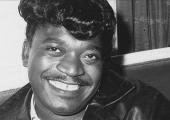theartsdesk Q&A: Pianist Yevgeny Sudbin

Phenomenal Russian talks about thinking orchestrally, inspirations, partnerships and Scriabin
Whatever the recording industry may try to tell you, there is rarely any such thing as a single “best” among today’s pianists. We’ve had Benjamin Grosvenor and Leif Ove Andsnes, excellent artists both, touted as a cut above the rest. But hearing pianists in all corners of the world, you realize how much phenomenal and ungradable talent there is out there.









